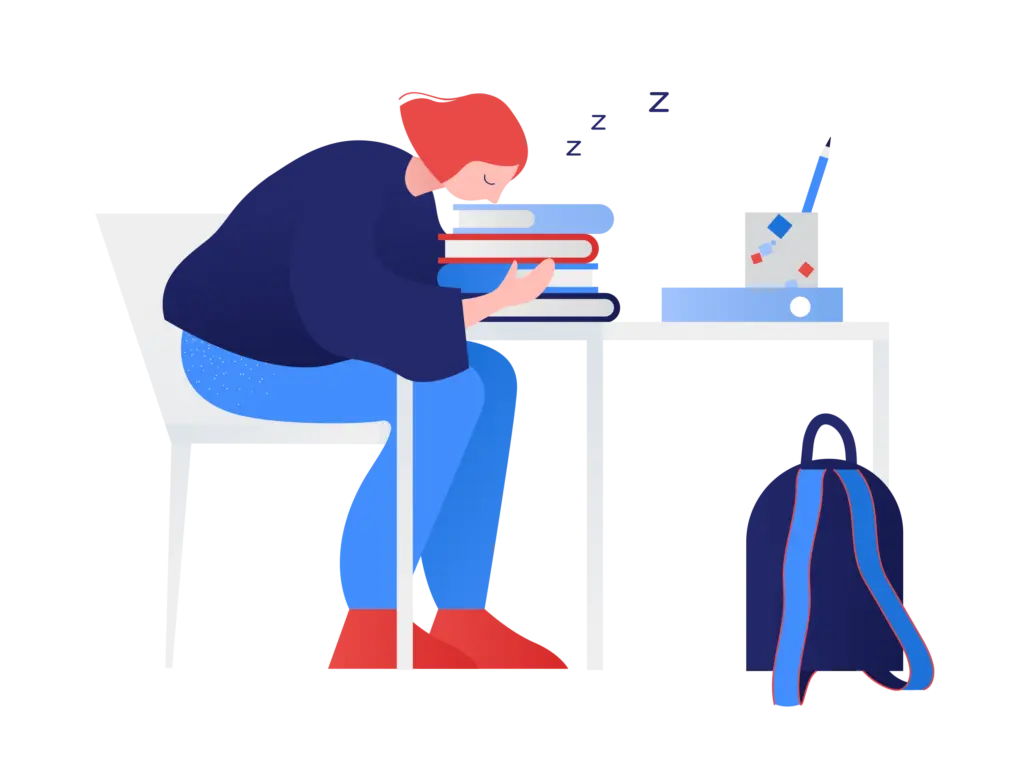The Link Between Sleep and GPA: Why Students Should Prioritize Rest For Better Grades
Getting good grades is important for students, but did you know that sleep can make a big difference? Many students stay up late studying, thinking it will help them get better grades. However, science shows that lack of sleep can actually hurt your performance in school. Sleep affects not only your grades but also your mood and energy levels throughout the day.
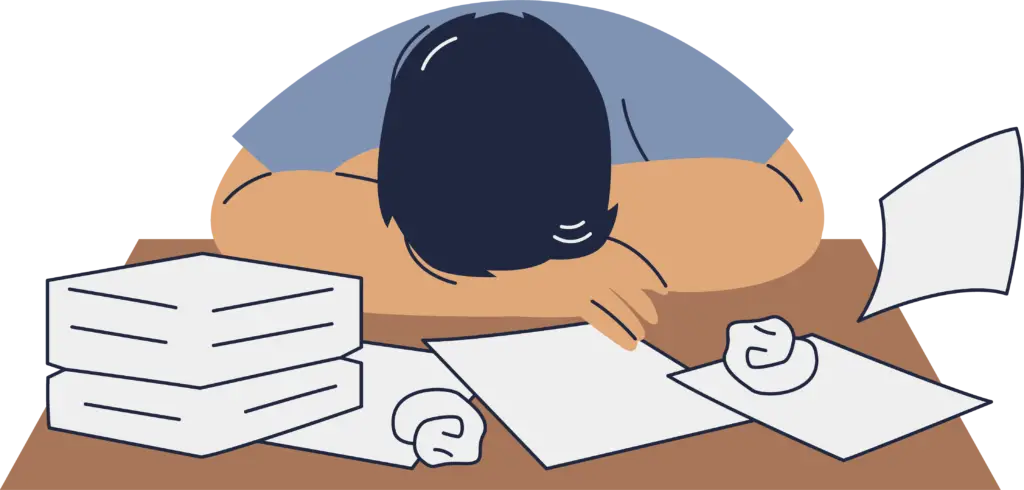
Why Sleep Is Important
Sleep is like a recharge button for your brain and body. It helps you think clearly, stay focused, and remember what you learn. Without enough sleep, your brain doesn’t work as well, making it harder to concentrate and do well on tests or homework. Over time, lack of sleep can also affect your creativity and problem-solving skills. It’s like trying to use a smartphone with a low battery—it just doesn’t work as smoothly.
What Happens During Sleep?
- Your brain processes the information you learned during the day.
- Your body repairs itself and grows.
- Your energy levels are restored for the next day.
Fun Fact:
Teenagers need 8-10 hours of sleep each night to function their best, according to the National Sleep Foundation. This amount of sleep allows their brains to fully process and store information, leading to better learning and recall. Additionally, getting enough rest supports emotional regulation, helping students manage stress and mood swings more effectively. Without adequate sleep, teenagers are more likely to experience difficulties concentrating and lower overall academic performance.
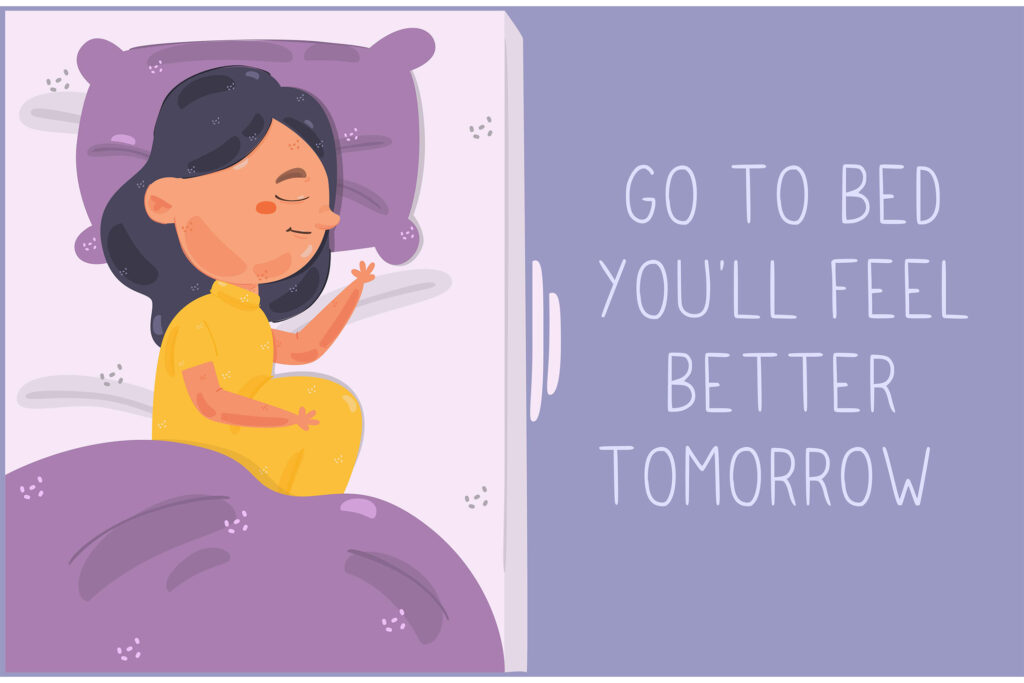
The Science Behind Sleep and GPA
Sleep and Memory
When you sleep, your brain strengthens memories and organizes information. This process, called memory consolidation, is essential for learning. Studies show that students who get enough sleep perform 20-30% better on memory-related tasks compared to those who don’t. Sleep also helps organize information in ways that make it easier to apply in real-world situations. For example, after a good night’s sleep, you might find it easier to solve math problems or write essays. Without adequate rest, the brain struggles to connect new information with what you already know, making learning less effective.
Sleep and Focus
Sleep-deprived students often feel tired and distracted, making it harder to pay attention in class. According to a study by the Centers for Disease Control and Prevention (CDC), students who sleep less than 7 hours are more likely to have trouble concentrating, which can lead to lower GPAs. Sleep loss can also cause irritability and make students more prone to procrastination. These issues often create a cycle where falling behind on tasks leads to even less sleep. Over time, this pattern significantly impacts academic performance.
Sleep and Test Performance
A study published in the journal Nature found that students who get at least 8 hours of sleep before an exam score significantly higher than those who stay up late studying. This is because sleep helps the brain process and recall information better. Additionally, well-rested students report feeling more confident and less anxious before tests. Getting adequate sleep can also improve critical thinking skills, which are essential for solving complex problems during exams.
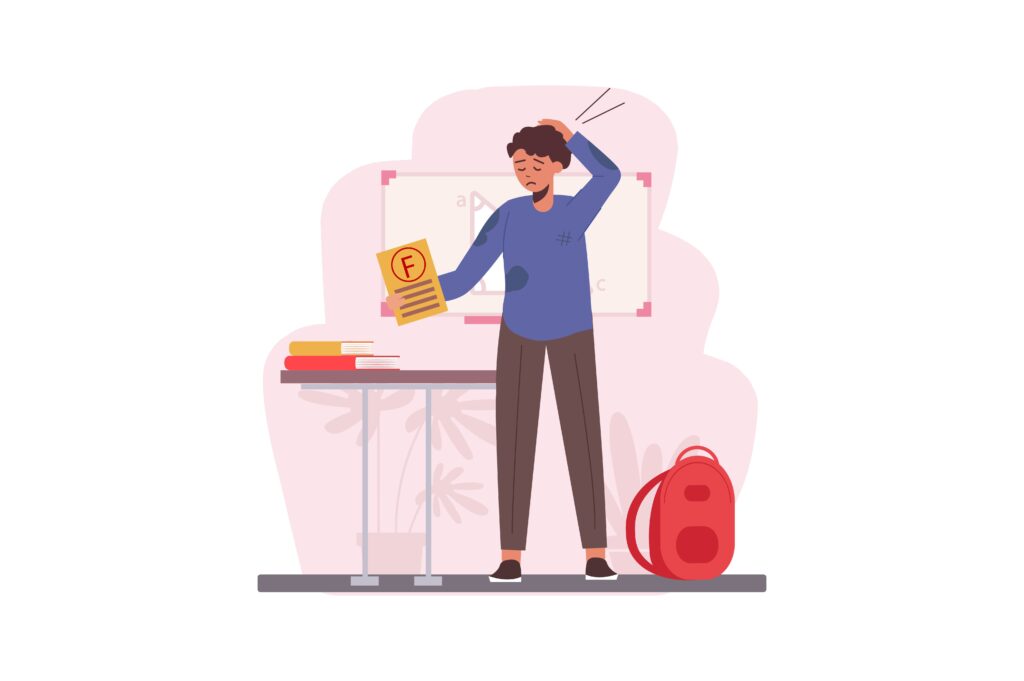
How Lack of Sleep Affects Students
Short-Term Effects
- Difficulty concentrating: You might daydream or zone out in class.
- Poor memory: Forgetting what you studied the night before.
- Low energy: Feeling tired and unmotivated.
Long-Term Effects
- Lower grades: A study from the University of Minnesota found that students with less sleep had GPAs 0.5 points lower than their well-rested peers.
- Health problems: Lack of sleep can lead to stress, anxiety, and even weakened immune systems.
- Increased risk of accidents: Sleepy students are more likely to make mistakes, whether it’s during sports, driving, or even walking to class.
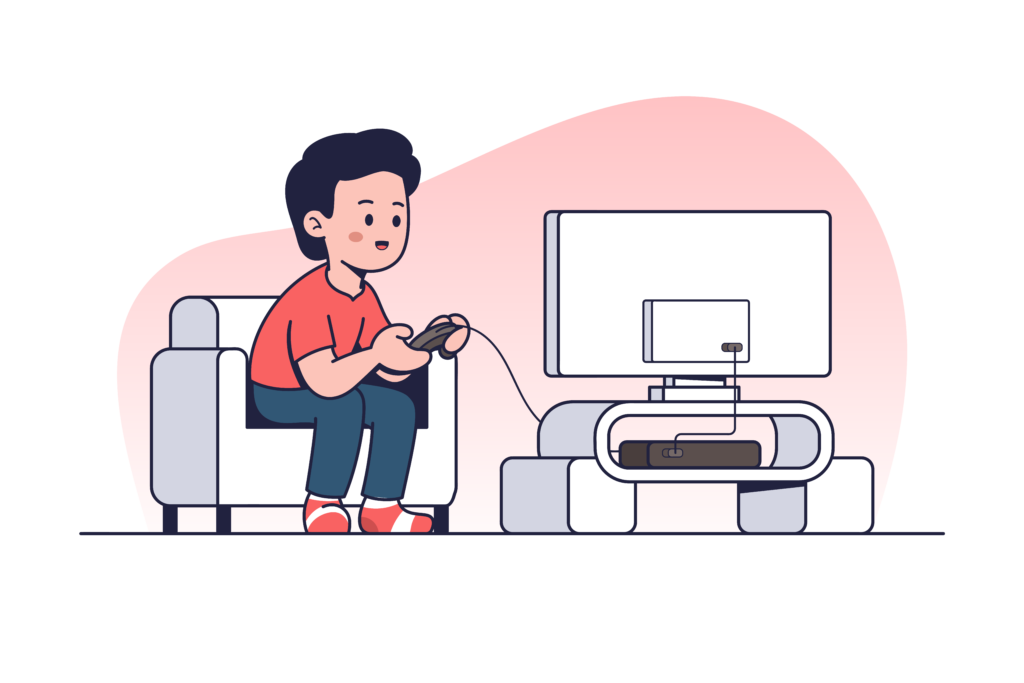
Why Students Struggle to Get Enough Sleep
Homework and Studying
Many students stay up late trying to finish homework or study for tests. While this might seem productive, it can actually backfire because your brain needs sleep to retain information. Studies show that sleep deprivation reduces your ability to concentrate and process new material effectively. Moreover, staying up late disrupts your natural sleep cycle, which can make it harder to feel alert and focused the next day. In the long run, sacrificing sleep for study time may actually lower your overall academic performance.
Technology and Screens
Watching TV, playing video games, or scrolling on your phone before bed can keep your brain active and make it harder to fall asleep. The blue light from screens can also interfere with your body’s natural sleep cycle. This is because blue light suppresses the production of melatonin, the hormone that makes you feel sleepy. Over time, this can lead to chronic sleep deprivation. It’s a good idea to set limits on screen time in the evening to help your body wind down naturally.
Social Activities
Hanging out with friends or attending late-night events can cut into sleep time. While socializing is important, it’s also essential to balance it with rest. Prioritizing sleep doesn’t mean skipping fun altogether—it’s about making time for both. Planning your day carefully can allow you to enjoy social activities while still getting enough rest. For example, scheduling early hangouts or setting limits on how late you stay out can make a big difference.
Stress and Anxiety
Worrying about school or personal issues can make it hard to relax and fall asleep. Stress often leads to tossing and turning at night. This lack of rest can make stress even worse, creating a vicious cycle of sleeplessness and anxiety. Learning relaxation techniques, like deep breathing or meditation, can help calm the mind and make it easier to drift off to sleep.
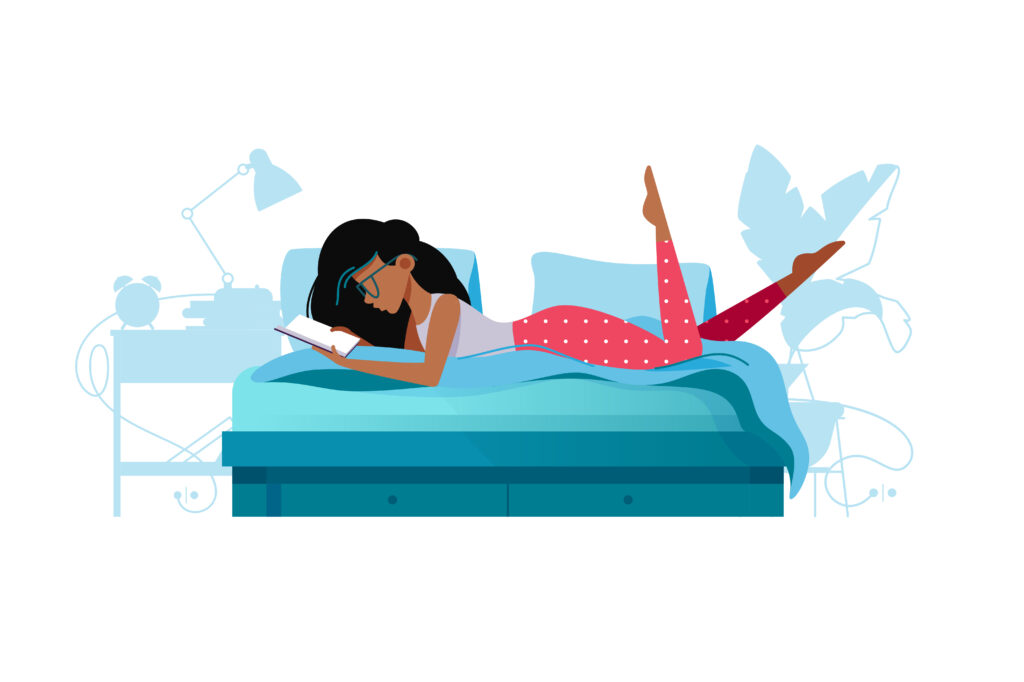
Tips for Better Sleep
1. Stick to a Schedule
Go to bed and wake up at the same time every day, even on weekends. This helps your body develop a natural sleep routine. Consistency trains your internal clock, making it easier to fall asleep and wake up naturally. Over time, this can lead to improved sleep quality and better energy levels throughout the day.
Pro Tip:
Set an alarm not just for waking up but also for when it’s time to wind down and get ready for bed.
2. Create a Relaxing Bedtime Routine
Doing the same relaxing activities before bed can signal to your brain that it’s time to sleep. These routines help your body associate specific actions with winding down, making it easier to fall asleep quickly. Over time, this consistency can improve the quality of your sleep, leaving you feeling more refreshed and energized each morning.
Ideas:
- Read a book.
- Take a warm bath.
- Listen to calming music
3. Limit Screen Time Before Bed
Avoid using phones, tablets, or computers at least an hour before bedtime. If you need to use them, try wearing blue light-blocking glasses. Additionally, consider enabling night mode on your devices to reduce blue light exposure. This small change can make a big difference in helping your brain prepare for sleep. Creating a screen-free zone in your bedroom can also encourage healthier sleep habits.
Fun Fact:
The blue light from screens can delay the release of melatonin, a hormone that helps you sleep.
4. Keep Your Room Sleep-Friendly
Your environment plays a big role in how well you sleep. A clutter-free, quiet, and calming space can promote better rest. Adding relaxing elements like soft lighting or a calming scent, such as lavender, can further enhance your sleep environment.
Tips:
- Keep your room cool and dark.
- Use comfortable bedding and pillows.
- Reduce noise with earplugs or white noise machines.
5. Avoid Caffeine Late in the Day
Caffeine can stay in your system for hours, making it harder to fall asleep. Drinking caffeinated beverages late in the day can lead to restless nights and disrupt your sleep cycle. This disruption can result in feeling groggy and unfocused the next day, making it harder to stay on top of schoolwork.
Examples of Caffeine:
- Coffee
- Energy drinks
- Soda
- Chocolate

Examples of Sleep Impacting GPA
Example 1: The A+ Sleeper
Maria, a high school junior, started going to bed at 10 PM every night. She noticed that she could focus better in class and remember more during exams. Her GPA improved from 3.5 to 3.8 in just one semester. She also felt less stressed and had more energy to participate in extracurricular activities. By sticking to her new sleep routine, Maria found herself enjoying school more and performing consistently across all her subjects.
Example 2: The Sleepless Struggler
Jake, a college freshman, often stayed up past midnight studying. Despite putting in the hours, his grades began to drop because he was too tired to focus in lectures. After prioritizing sleep, his GPA went from 2.8 to 3.2. He also found that he retained information better and felt more prepared for class discussions. Making sleep a priority gave him more energy and confidence to tackle his assignments and exams effectively.
The Bottom Line
Sleep is not just a luxury; it’s a necessity for students who want to succeed academically. By understanding the link between sleep and GPA, and making simple changes to your routine, you can improve both your grades and your overall well-being.
Quick Recap:
- How Sleep Helps: Improves memory, focus, and test performance.
- What Hurts Sleep: Late-night studying, screens, stress, and caffeine.
- How to Sleep Better: Stick to a schedule, avoid screens, and create a relaxing bedtime routine.
Remember, better sleep equals better grades—and a happier, healthier you!

How Has Sleep Affected Your Grades?
Are you more like Maria, the A+ Sleeper, or Jake, the Sleepless Struggler? Take a moment to think about how your sleep habits might be influencing your performance in school. Share your experience and consider how prioritizing rest could make a difference for you.
